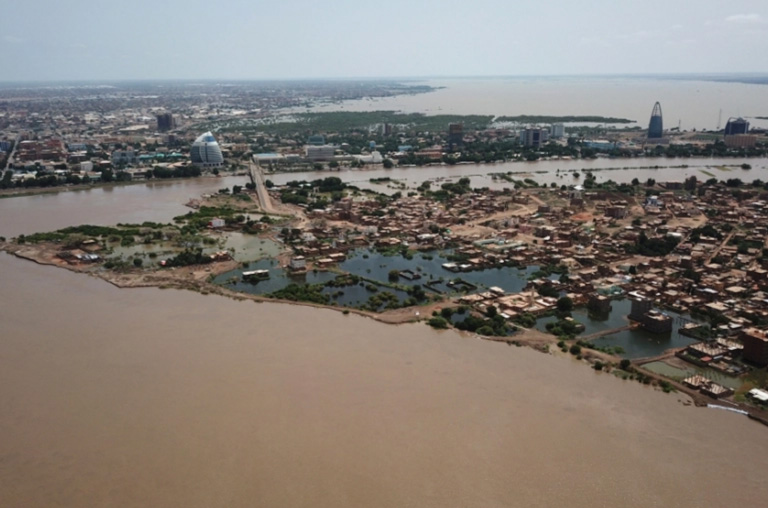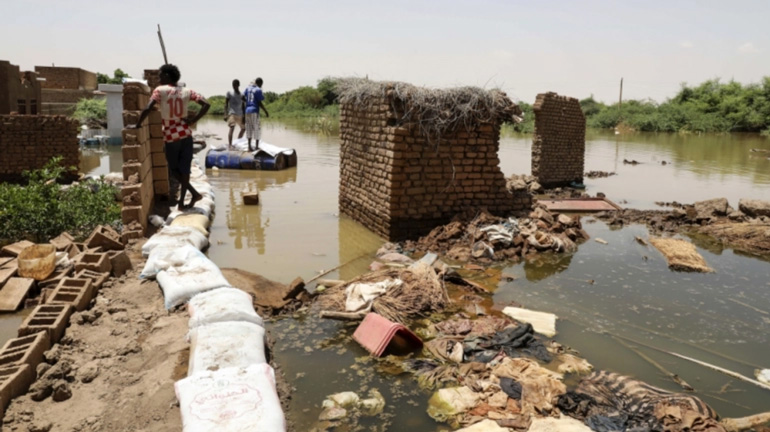
Humanitarian workers in disaster-hit Sudan are in danger of running out of funds to continue operations, the United Nations has said, warning that heavy rain and flooding were continuing to pose “unprecedented challenges” for thousands of vulnerable families across the country.
Flooding and landslides triggered by torrential downpours have affected nearly 830,000 people, destroyed hundreds of thousands of homes and damaged large tracts of farmland just before harvest, the UN Office for the Coordination of Humanitarian Affairs (OCHA) in Sudan said on Thursday.
Yet, the “funding to respond is extremely low”, it said.
Sudan – which is battling multiple crises, including armed conflict and outbreaks of COVID-19 and polio – only received 15 percent of the $110m required for healthcare needs, OCHA said in a statement, and only 22 percent of the $71.6m requested for water and hygiene needs.
“Aid organisations are running out of support and more funding is urgently needed,” the agency said in a separate Twitter post.
Earlier this month, Sudan declared a three-month state of emergency over the catastrophic floods, which began in mid-July and mark the worst flooding in the country in three decades.
At least 124 people have died since floodwaters swept the country, and 54 have been injured, according to the Sudanese civil defence force. Of the nearly 830,000 people affected, more than half were children, OCHA added.
The worst-hit states were North Darfur, Khartoum, Blue Nile, West Darfur and Sennar, with large areas of farmland in the affected states under water. The destruction of farms could compromise food insecurity, OCHA warned, especially in Khartoum state, “where over 1.4 million people are severely food insecure”.
The Sudanese government and aid groups have also warned of the increased risk of water-borne diseases amid the crisis.
“We need the government to come take care of the water in the houses, because the water is now mixed with sewage water from the trees that collapsed”, Farajalla Mohammed, a resident of Gileia, told Al Jazeera.

Many volunteer groups in the country have stepped up to help mitigate the damage, including trying to create barriers between the river and villages, providing medical aid to the injured and spraying disinfectants to kill mosquito larvae.
Khalid Ahmed, of the Tuti Floods Response Committee, told Al Jazeera that if the “volunteers did not step up, there would have been more loss of lives and damages”.
“Me and my family weren’t affected by the floods on a personal level, but some of those we know were. That was enough for me to want to help,” Mohammed Alamin, of the Sudan Scouts group, told Al Jazeera.
OCHA warned that the situation could deteriorate further in the coming days with more rain forecast across Eastern Africa.
Heavy rains usually fall in Sudan from June to October and the country faces severe flooding every year.
But officials have recorded the highest water levels on the Blue Nile, which joins the White Nile in the Sudanese capital, Khartoum, since records began more than a century ago.